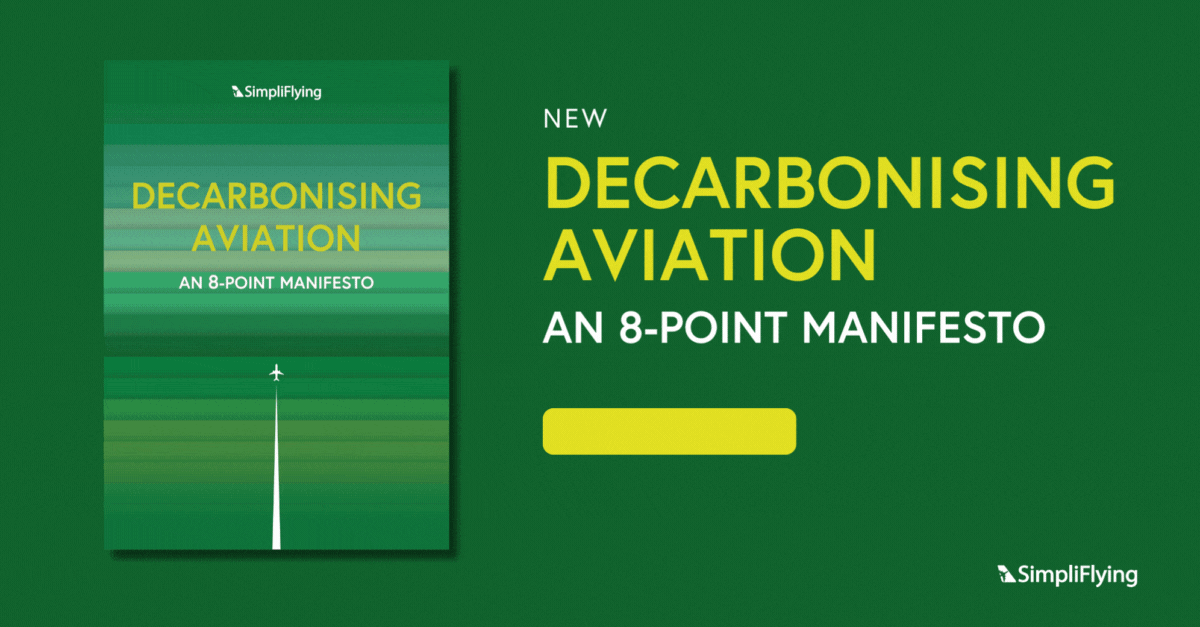Download: Our 8-point manifesto for the aviation industry to decarbonise
🔥 We highlight the challenges the industry faces to reach net zero, and offer a roadmap to overcome them.
Coinciding with the launch of our new book, Sustainability in the Air, we are publishing an eight-point manifesto for the aviation industry to decarbonise. You can download and access the full report for free here.
The aviation industry finds itself at a crossroads, grappling with the environmental consequences of its operations. While today aviation’s global share of greenhouse gases is around 3%, that could grow to 22% by 2050 if left unchecked.
Our eight-point challenge for aviation
Tie growth to sustainability
Combine incentives and mandates
Apply the "polluter pays principle" as a "clean skies" fund
Focus on global equity, including the "Global South"
Ensure aviation doesn’t take more than its fair share
Emphasise transparency, accountability, and targets
Encourage cooperation and knowledge-sharing
Ultimately, aim for true zero, not net zero
We address each of these points in more detail in our report.
The problem: credibility and growing emissions
Mobility, as expressed through air travel, is a force for good. It has enabled millions of people to live, love and learn in places different – and often far – from where they grew up.
In fact, many of the inventions and innovations of modern life we all take for granted were possible because someone somewhere got on a plane.
Here’s an example. Perhaps you found this content via a Google search. If so, you have Sergey Brin to thank.
Brin left his native Russia to go to the USA and became one of the two founders of Google, along with Larry Page. Likewise, the current CEO of Google’s parent company, Alphabet Inc, is someone who is where he is thanks to air travel - Indian-American Sundar Pichai.
Or perhaps you were one of the many who received a life-saving mRNA vaccine during the COVID pandemic. Would mRNA as a technology have existed had Dr Katalin Karikó not gotten on a plane with her husband and two-year-old daughter in 1985, leaving Hungary to take up an academic position in the USA?
While Dr Karikó is credited as the inventor of MRNA, the first MRNA COVID vaccine on the market at the end of 2020 came from BioNTech’s Uğur Şahin and Özlem Türeci, whose parents left their native Turkey to go to Germany.
We don’t want to turn the clock back to a time when air travel was the preserve of those with lots of time and money, the inevitable consequence of widespread curbs on flying. We want even more people to enjoy its benefits so that we get many more Sergey Brins or Katalin Karikós.
At the same time, future generations won’t be able to enjoy those benefits if climate change makes large parts of the planet uninhabitable.
This comes as the industry is increasingly in the spotlight due to its growing share of greenhouse gas emissions. If left unchecked, its global share could grow from around 3% in 2023 to over 20% by 2050.
Many airlines are making the right noises when it comes to decarbonisation, but climate activists, by and large, treat this with scepticism. They point out that the industry has made similar grand-sounding promises in the past, which were then subsequently almost always either watered down or dropped completely.
For example, a 2009 IATA discussion document said that “green fuels is not a simple task, but a must!”, before proposing a target of 10% alternative fuels / SAF to be used as a total proportion of jet fuel by 2017.
Needless to say, the industry is nowhere near that target. Even in a climate-aware region like the European Union, SAF represents less than 0.5% of total fuel use.





